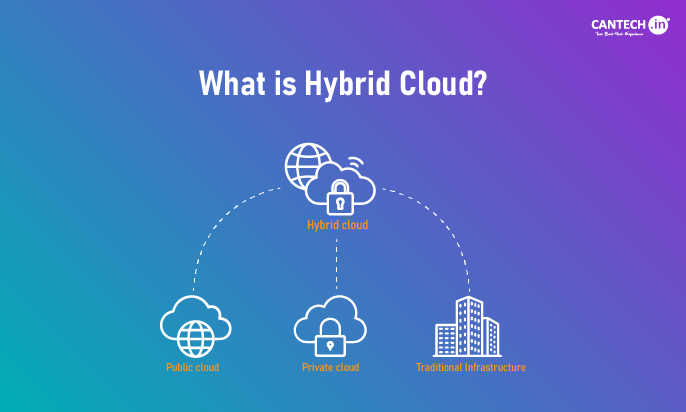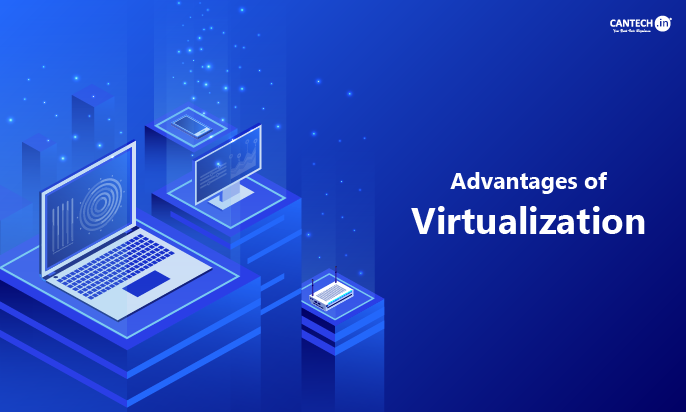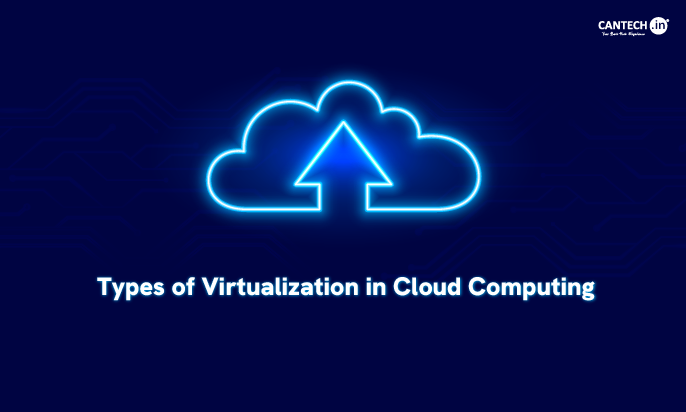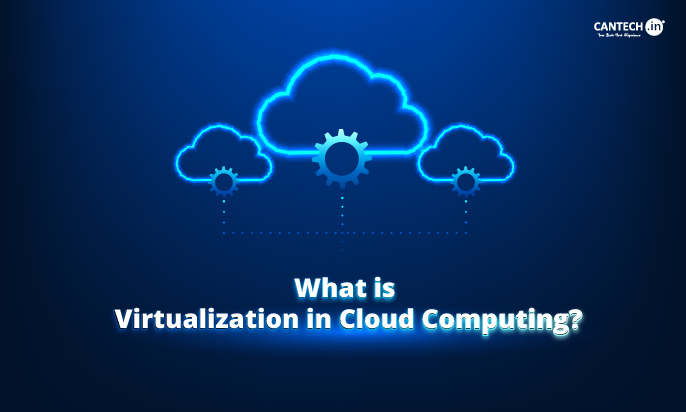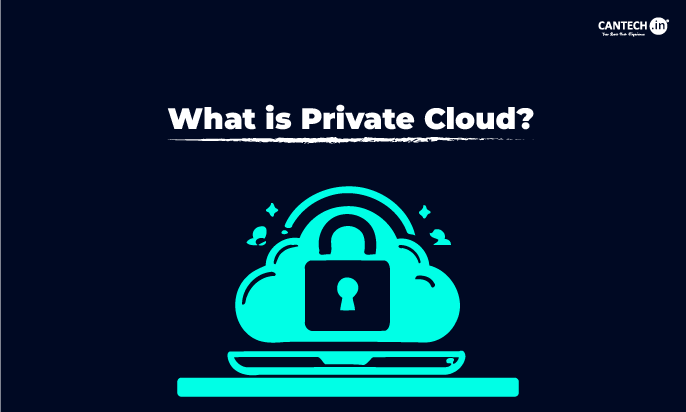Introduction
Cloud computing, with its advancements and resultant benefits, has brought about a lot of changes in the way businesses operate. However, it is difficult to prioritize between cost, security, and scalability in choosing the cloud infrastructure for businesses. For example, public clouds offer accessibility but they may not offer the stringent security controls that some businesses would require. Moreover, rapid business growth can outgrow existing IT infrastructure causing performance issues and increased costs. Also, if you choose the wrong cloud model, it can lead to inefficiencies and increased expenses. This blog will compare the three primary cloud computing models – Public cloud vs. private cloud vs. hybrid cloud – with their respective meanings, benefits, and drawbacks.
Thus, entrepreneurs, small business owners, growth strategists, IT administrators, financial officers, operations managers, and CTOs can understand the capabilities of each model. With extensive information on what is public cloud, private cloud, and hybrid cloud, they can invest in the right solution for optimal performance and growth.
What is Cloud Computing?
The concept of cloud computing has grown a lot since its inception. It started as simple data storage solutions and now it is a complex, multi-service environment that meets different business needs.
Cloud computing technology allows businesses and individuals to access and store data, applications, and services over the Internet. They do not need to rely on local servers or personal devices such as hard drives when using cloud solutions. Also, this model offers on-demand access to computing resources so that the users can scale their business operations to enable smooth and cost-effective operation. Cloud services involve user devices (like PCs and tablets) that connect to backend data centers.
The types of cloud computing categories include Software as a Service (SaaS), Platform as a Service (PaaS) and Infrastructure as a Service (IaaS)
Related: What Is Cloud Hosting? How It Works and Its Benefits
Cloud Infrastructure Components
The key parts of cloud infrastructure are:
- Compute Power – The processing power from the cloud servers.
- Storage – Data storage solutions such as databases and file storage.
- Networking – Connectivity solutions that link cloud services and resources.
- Applications – Software applications that are hosted and accessed through the cloud.
Key Benefits of Cloud Computing

- It offers cost savings by reducing the need for substantial upfront capital expenditure on hardware and software. It provides access to services and data from any location with internet connectivity and so does not require upfront investments. Thus, you switch from heavy capital to cost-efficient operational expenses.
- It makes the development and operations processes smoother, faster, and more efficient with cloud services and reduces the time required to deploy new applications. You can automate repetitive tasks, simplify workflows, and deploy updates quickly. You can build and manage software efficiently.
- It is highly flexible in scaling resources up or down based on demand. Thus, you can easily prepare for future needs with its scalability.
Public Cloud Vs. Private Cloud Vs Hybrid Cloud: Comparison of Cloud Computing Models
Now that we know what is cloud computing, let us compare the 3 cloud computing models in this section: public cloud vs. private cloud vs hybrid cloud. Each model comes with unique features and benefits suitable for different business needs.
What is a Public Cloud?

A public cloud is a cloud computing model in which third-party providers offer cloud services and infrastructure over the Internet. Businesses use shared resources including servers, data, storage, applications, etc.
These services are available for businesses that need scalable and flexible resources without significant upfront investments. The pay-as-you-go model reduces capital expenditure significantly so a public cloud is a highly cost-effective option. They offer virtually unlimited scalability to adjust business resources up or down as per the demand.
They also provide global reach and easy accessibility for businesses to operate from anywhere.
Popular public cloud services include infrastructure as a service (IaaS), platform as a service (PaaS), and software as a service (SaaS).
Advantages of Public Cloud
Public cloud services offer various advantages. As discussed they are highly scalable, cost-effective, and offer easy accessibility. Also, it is an ideal type of cloud computing for businesses with fluctuating demands. Let us summarise some of the advantages of the public cloud below:
- In comparison of private cloud vs public cloud cost, you only pay for what you use with public cloud services, making them a more cost-efficient option. Additionally, with effective cloud cost optimization, you can further reduce expenses by selecting the right pricing models and resource allocations. Also, you need not maintain the physical servers or own an infrastructure. Further, the public cloud providers give tailored pricing options with tailored offerings.
- Businesses can flexibly invest in innovation projects with cost agility.
- You get automatic software updates from the public cloud providers so no manual updates are required.
- You can access resources and applications globally from anywhere with an internet connection.
- Public cloud providers also maintain and manage it overall. Therefore, you need not have extensive IT expertise for the same.
- You get on-demand resources for your business demands and unpredictable workload increases.
- A network of servers with robust infrastructure prevents any failure.
Disadvantages of Public Cloud
The public cloud also involves some disadvantages pointed out below:
- It can cause security and privacy concerns such as data breaches and cyber attacks. Thus, it can cause risks to confidential or sensitive data stored on third-party servers.
- It offers limited control and customization over the infrastructure to meet specific requirements and compliance needs.
- You need to rely on Internet connectivity to access resources and applications. So, a reliable and stable internet connection is required for performance and availability.
- Public cloud providers may encounter downtime because of hardware failures, software issues, or maintenance. It can cause temporary loss of access to data and apps.
- Public cloud services may not help fulfil custom compliance or regulatory requirements.
- They can cause unexpected cost overruns – a drawback mainly for large-scale usage’s total cost.
- In public vs private vs hybrid cloud, the public is less secure and so it is less suitable for sensitive & mission-critical workloads.
Use Cases
What is public cloud used for? It is ideal for e-commerce platforms or other websites that need to handle traffic fluctuations. Startups that need cost-effective solutions without making any significant upfront investments must also consider Public clouds. Further, it is well-suited for the development and testing environments that would require flexible and scalable resources with cost-effectiveness.
What is a Private Cloud?

A private cloud is another type of cloud computing model. It means that services and infrastructure are dedicated to a single business organization. They have their own data center, dedicated cloud computing resources, and a private network.
This model is the best choice for businesses needing enhanced security, control, and stringent regulatory requirements or sensitive data protection. A private cloud server offers a high level of customization. Thus, businesses can tailor their cloud environment to their specific needs. They can protect data and applications from unauthorized access, and have greater control over their infrastructure and data management.
It can be hosted on-premises or by a third-party provider and provides flexibility in deployment options. A private cloud server is dedicated only to your needs so it can ensure consistent performance and reliability.
Advantages of Private Cloud
The private cloud has various benefits discussed below:
- When comparing public cloud vs private, one of the advantages of private clouds is that they can provide dedicated and secure environments. Other organizations cannot access it due to dedicated infrastructure and private networks. Thus, it can implement stringent regulations and efficient performance with consistent and dependable operations.
- A private cloud is used for a higher level of security and privacy. The business organization can have full control over the cloud service with dedicated resources so they can customize security protocols and measures flexibly as needed.
- The private cloud is flexible so the organization can transform the infrastructure as per the changing business and IT needs.
- A private cloud server offers greater scalability too. It can meet unpredictable demands without compromising on security and performance.
The advantages of private clouds can be mainly summarised as high security, greater control, and customization options.
Disadvantages of Private Cloud
The private cloud has a few drawbacks too. It can cause challenges for an organization due to the following reasons:
- Private clouds need to have a significant investment in dedicated hardware, software, and networking infrastructure. Thus, the private cloud vs public cloud cost comparison says private clouds can be expensive to implement and maintain and smaller organizations may not afford it.
- They may not scale as efficiently as public clouds. Quick adjustment of resources to meet changing demands can be difficult and resource-intensive.
- Organizations need specialized skills and technical know-how to manage private cloud infrastructure demands. They also need adequate IT resources or they may find this challenging.
- They are not immune to data breaches and cyber-attacks. It is critical to maintaining robust security measures which can be complex.
- They rely on proprietary technology so it can be difficult to integrate with other cloud services or switch providers. It offers limited flexibility due to this lack of standardization.
- Regular maintenance and upgrades of a private cloud server require a lot of time and effort. Thus, it can take your focus out of core business operations unless you have a dedicated team for the same.
- Strict security protocols limit mobile access and may hinder remote work capabilities.
Related: Advantages And Disadvantages Of Cloud Computing
Use Cases
What is a private cloud right for? Well, it is ideal for enterprises with stringent regulatory requirements. Financial services, healthcare, eCommerce, etc need critical security and compliance from private clouds. Also, government agencies use private clouds to benefit from their secure and controlled environments for sensitive data and applications. Further, large-scale organizations that need state-of-the-art data center technologies for efficient business operations use private cloud servers.
What is a Hybrid Cloud?

A hybrid cloud is a type of cloud computing model that can implement the required features of both public and private clouds.
That is, businesses can implement the benefits of both. They can address their specific needs and requirements and can use a hybrid cloud to meet them.
Hybrid clouds provide the flexibility to choose the optimal environment for different workloads. Also, it optimizes the costs by using public clouds for less sensitive workloads and private clouds for critical applications. Businesses can further use the public cloud resources for scalability and cost savings, while they maintain control and security of sensitive data in private clouds.
This type of cloud computing model supports seamless integration between public and private clouds. Thus, it can enable data and application portability.
If you are evaluating private cloud vs hybrid cloud, consider that private clouds offer tailored security and control; whereas, hybrid clouds provide a balanced approach with public and private resources for flexibility, cost optimization, and improved security.
Advantages of Hybrid Cloud
Hybrid clouds offer various benefits. Let us summarise them below:
- A hybrid cloud makes flexible deployment possible as it distributes workloads across public and private environments as per the specific business needs for security, performance, and cost-efficiency.
- You get the scalability of public clouds and security of private clouds so that the sensitive data is protected while using the expansive resources of public clouds.
- A hybrid cloud uses multiple data centers, both public and private, and offers reliability along with continuous service availability.
- It can run sensitive IT workloads on secure private infrastructure and use cost-effective public cloud resources for other tasks. Thus, it can make overall cost control possible. Similarly, while it offers strong security for sensitive data within private clouds, it can give flexibility & scalability for additional resources with the public clouds.
- It can use public cloud resources on-demand and offer cost savings.
- You get a smoother transition to the cloud with a phased approach for the organizations to migrate workloads gradually. Thus, it reduces the complexity and impact of the transition.
- You can shift workloads between private and public clouds as per your current needs.
Disadvantages of Hybrid Cloud
- The setup and management of a hybrid cloud is complex. Also, a smooth integration between public and private cloud environments is necessary. Thus, all these tasks need to have specialized technical skills and resources. Also, it may face compatibility issues between different systems.
- Hybrid clouds can be more costly to implement and maintain. On top of that, they need extra hardware, software, and networking infrastructure. It can also lead to inefficiencies and unexpected spending as you need to manage expenses across multiple environments.
- Hybrid clouds may also face security risks such as data breaches and cyber attacks due to a lack of standardization across different cloud environments. It can be challenging to ensure consistent security measures across all components.
- There can be complications in data governance and control as it can be challenging to manage and ensure compliance with regulations like GDPR or HIPAA across different cloud environments.
- Network latency and performance issues occur as you need to rely on communication between different cloud environments. Thus, it affects the overall efficiency of the cloud infrastructure.
- A hybrid setup uses multiple cloud providers and it may cause vendor lock-in. It can limit flexibility and make it harder to switch providers or adjust services in the future.
Use Cases
What is a hybrid cloud right for? Hybrid clouds are suitable for businesses that require a combination of public and private cloud benefits. Examples include:
Retail operations need smooth integration of online and offline systems (the public cloud would provide scalable and cost-effective non-sensitive workloads such as online sales and the private cloud is best secure for critical systems and sensitive data, like inventory management). Also, manufacturing companies require flexible solutions for diverse workloads; and educational institutions need scalable resources for different academic needs.
Public vs Private vs Hybrid Cloud: A Comparison of Features
Public Hybrid Private Cloud – Which one is the right type of cloud computing model for you? It depends on features like cost, scalability, security, and control. Get a brief comparison of Public vs Private vs Hybrid Cloud based on the parameters below:
| Features | Public Cloud | Private Cloud | Hybrid Cloud |
| Resource Sharing | Among multiple customers; scalable and flexible | Dedicated to a single organization; offers predictable performance but can be less flexible | Shared public resources and dedicated private resources combined as per your specialized need; scalable & flexible due to the combination |
| Cost Structure | The pay-as-you-go model; cost-effective | Higher upfront capital costs with various pricing models | Blends public cloud pay-as-you-go with private cloud’s fixed or other pricing models; may or may not prove to be expensive |
| Management | Third-party providers | Organization itself manages | Public and private providers may manage together |
| Control & Security | Easy but minimal control; less secure due to shared public cloud environment | High control and customization; very secure and enables regulatory compliance | Can benefit from the security and control features of Private Cloud |
Why Choose Cantech’s Cloud?
Cantech offers reliable and high-performance Cloud hosting platform. Developers can deploy applications for various runtimes and software stacks instantly and efficiently using our PaaS. You can simplify your processes without code changes with automated deployment for various technologies such as Java, PHP, and Docker.
Moreover, our platform scales resources dynamically and you only pay for what you use with our granular scaling system. You get our intuitive DevOps automation tools, CI/CD integration, secure environment, 99.99% uptime SLA, 24/7 support, and more. Cantech’s cloud services are an ideal choice for both small businesses and large enterprises looking to optimize cloud computing.
Conclusion: Choosing the Right Cloud Model
Evaluation of public cloud vs. private cloud vs. hybrid cloud from various angles would help you choose the right type of cloud computing to maximize business efficiency and achieve your strategic goals. Your workload needs would decide which type you require and which one would benefit you in terms of scalability, flexibility, cost-efficiency, control, and other factors. You need to carefully study the advantages and disadvantages of all 3 types of cloud private public hybrid to reach a conclusion. Let Cantech help you with your cloud computing needs. Reach out today.
FAQs
What is cloud computing?
When you get the delivery of computing services over the internet with on-demand access to resources like servers, storage, network, applications, processing power, etc., it is called cloud computing. There are three types of cloud: public cloud, private cloud, & hybrid cloud.
What is a public cloud?
A public cloud computing model means the delivery of computing services and infrastructure from a third-party provider through the Internet.
What is a private cloud?
Private cloud services and infrastructure are dedicated to a single organization without sharing the resources with others. Organizations prefer it for its enhanced security and control for specific needs and regulatory requirements.
What is a hybrid cloud?
This type of cloud computing combines the features and benefits of both public and private clouds. Businesses can address specific needs and requirements from respective clouds using a hybrid cloud.
What is Cloud Responsibility or a Shared Model?
The responsibility of a cloud environment for managing and preventing risks is shared between you and the service provider. Vendors handle the IT infrastructure and offer flexibility and agility. On the other side, your organization needs to ensure proper access and control and implement cloud security and encryption measures. Also, you must develop disaster recovery plans.
This shared responsibility model highlights the need for vigilance and proactive management even though you may be relying on third-party cloud services.
What are the types of cloud computing services?
IaaS – Infrastructure as a Service
You can rent cloud resources such as servers, storage, VMs, OS, etc on a pay-as-you-go basis.
PaaS – Platform as a Service
Get a platform for developing and managing applications without handling underlying infrastructure.
Serverless Computing
Build and run apps without managing servers while the cloud provider manages and scales the server. It uses resources for a specific function only.
SaaS – Software as a Service
You get software applications over the Internet on a subscription basis. The provider manages the software and infrastructure.
What is the difference between public private and hybrid cloud types?
The difference between public private and hybrid cloud types mainly lies in resource management. Public cloud services provide resources over the internet to multiple users. Private cloud services offer dedicated resources for a single organization. Whereas, hybrid cloud combines the required features of both public and private cloud.
Can you compare private cloud vs public cloud type?
The difference between private cloud and public cloud types is that a private cloud offers dedicated resources for one organization to provide greater control and security. On the other hand, a public cloud provides shared resources to multiple users through the internet so it is more cost-effective but less customizable.
Can you give public cloud vs private cloud vs hybrid cloud examples?
Public cloud services include platforms like Amazon Web Services (AWS) – multiple users access resources over the internet. Cantech offers PaaS. Further, private cloud examples include organizations that set up their own cloud infrastructure such as banks or government institutions. Lastly, hybrid cloud examples combine both, like AWS for public cloud needs and a private cloud for sensitive data.

